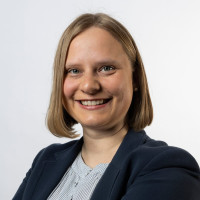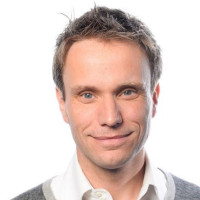Mental Health & Neurology
Prevention & Personalised Health
Sleep Quality & Patterns
Brain Mechanisms & Psychology
Post-Doctoral Fellowships
Switzerland
2011.10.31
The role of reward in sleep-related memory consolidation and brain plasticity
Doctor Kinga Igloi’s host research group has proven that brain regions activated while learning a task are reactivated during sleep: memory is consolidated and its performance can be improved. They have also demonstrated that the brain circuits involved in sleep-wake regulation exert a strong influence on reward-related brain regions.
Bad memory? One solution is sleep!
However, how motivational factors (i.e., rewards) influence the selection of newly memorized information for further consolidation remains largely unknown. This is what Dr. Igloi is investigating: in a game-like task, individuals are asked to memorize sequences of pictures associated with high and low monetary rewards. They are then asked to take a break: half of them with sleep, half of them without sleep. Finally, their recall performance is tested.
Using state-of-the-art brain imaging techniques, each individual’s brain activity is recorded while they memorize and recall the pictures. The data is then compared to show the effects of sleep and reward on learning and memory. The aim is to demonstrate that motivational relevance is a key factor in information retention, but also to highlight the differential effect of sleep on highly and lowly rewarded memories.
Dr. Igloi’s project integrates two previously disconnected fields of research (sleep and reward) and promotes interdisciplinary work. Her findings could draw attention to the essential role of sleep and help to improve educational or clinical rehabilitation strategies for the most vulnerable populations (i.e., children and psychiatric patients). Lack of sleep is an increasing trend in our fast-paced society and can have disastrous consequences not only for an individual’s health (from tiredness to altered risk-taking behaviors) but also for society as a whole (socioeconomic and public safety consequences). For these reasons, Dr. Igloi’s findings could also have major implications for public health.
To add or modify information on this page, please contact us at the following address: community.research@axa.com

Kinga
IGLOI
Institution
University of Geneva
Country
Switzerland
Nationality
Hungarian
Related articles
Pollution
Prevention & Personalised Health
Toxic Pollutants & Hazardous Substances
Plastics
Post-Doctoral Fellowship
Luxembourg
Using New Data Sources to Better Manage Substances of Concern (Soc)
In order to put together an accurate risk management process and drive the appropriate regulatory policies, it is necessary to... Read more

Oona
FREUDENTHAL

